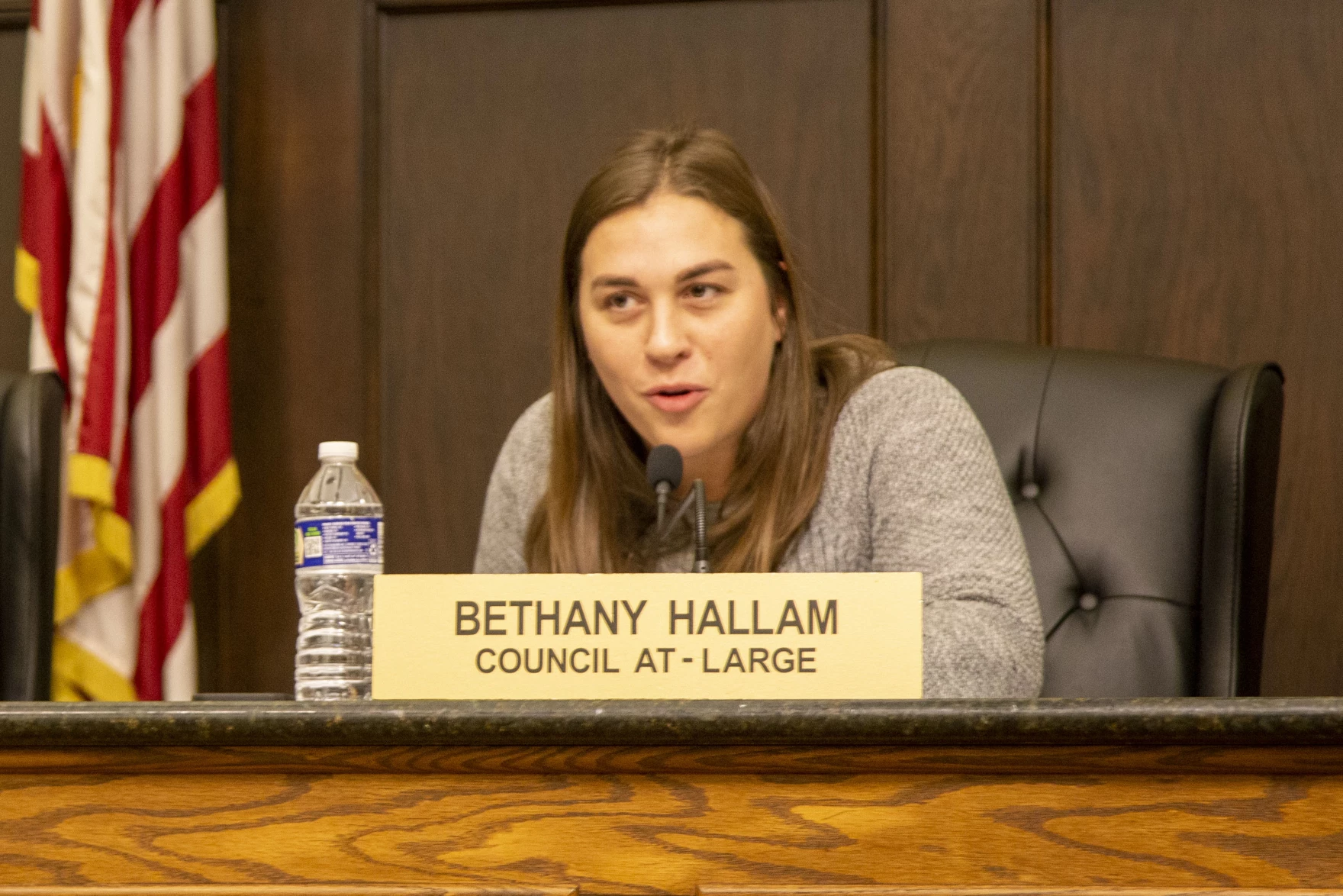As a public radio outlet, WESA generally avoids profanity. We believe our audience deserves respectful, rational discourse. (By which I mean we’re afraid of the FCC.) But it takes work … especially when discussing Allegheny County Councilor Bethany Hallam and an even more provocative topic: the rules of procedure in the state House.
Hallam, you may have heard, made waves early this month by using — as Maria Liasson would describe it — a vulgar anatomical reference to refer to Allegheny County Common Pleas Judge Elliott Howsie at a meeting of the Jail Oversight Board. Hallam represents County Council on the board and, as a staunch advocate for improving conditions at the Allegheny County Jail, has squared off against Howise and Warden Orlando Harper many times.
What the recent bout of political profanity says about the system
Hallam says she muttered the epithet to herself, but her microphone picked it up, and she did not apologize. That prompted Republican County Councilor Sam DeMarco to draft a motion to censure her.
“I think the behavior is beneath the dignity of our office,” DeMarco told his colleagues at a council meeting Tuesday.
DeMarco’s resolution got just two other “yes” votes on the 15-member council. Several claimed it would apply unequal standards because council rejected a censure of another of its members last year.
What the recent bout of political profanity says about the system
It probably also didn’t help that during public comment, DeMarco himself was confronted with a tweet in which he referred to a congressman with labels that included another crude anatomical insult.
But Councilor Dewitt Walton made clear that won’t be the last epithet we hear on the subject. “I’ve called some folks some names, and I will do it again,” he said while explaining his vote to abstain.
And maybe that shouldn’t end the debate. Because while rules exist in part to prevent bullying people with different viewpoints, they also can be used to turn those viewpoints aside. As one of Hallam’s defenders, justice-reform advocate Tanisha Long, said during public comment, the censure effort “looks like trying to silence one of the few people who stand up for incarcerated people.”
That almost certainly wasn’t DeMarco’s goal: I’ve always found him willing to engage in what Mary Louise Kelly would describe as a candid exchange of views. But Hallam’s brashness may help explain why she, more than any other public figure, has raised public concern around jail conditions.
And that feeling that rules are used to sideline voices that challenge the status quo? There’s a lot of that going around.
It was in evidence just one night after council’s debate, in fact, when state House Speaker Mark Rozzi visited Carnegie Mellon University to launch a bipartisan “listening tour” about ending “gridlock” and “hyperpartisanship” in Harrisburg.
Rozzi rose to the speakership amid bickering about who should control the closely divide House. which he then promptly shuttered. The Democrat took that step after Republicans tried to link proposed constitutional amendments. Including a voter ID requirement, to a bill that would make it easier for child sexual abuse victims to sue their abusers.
“My priority is going to get done,” Rozzi, who is himself an abuse survivor. Told reporters Wednesday. “Until we find a pathway forward, I’m going to keep the doors of the House locked.”
Republicans view the tour as an effort to run out the clock until a trio of special elections. Allegheny County all of which are likely to be won by Democrats. (A sweep would give Democrats a clear House majority.) And it’s arguably a bit of a paradox that Rozzi is decrying gridlock and dysfunction even. As he unilaterally decides what business gets done in Harrisburg or if any gets done at all.
But if state legislators are upset at being locked out of the House. The scores of people who attende Rozzi’s event clearly have felt the same way for years.
Speaker after speaker argue that House rules don’t just thwart good bills from being passe. They prevent them from being discusse. A handful of majority-party leaders and the people they appoint to head committees. Almost absolute control over what bills will ever get votes. Even bills with broad and bipartisan support can be bottle up for years.





